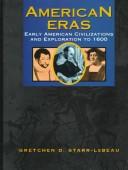| Listing 1 - 6 of 6 |
Sort by
|

ISBN: 069109683X Year: 2003 Publisher: Princeton, N.J. Princeton University Press
Abstract | Keywords | Export | Availability | Bookmark
 Loading...
Loading...Choose an application
- Reference Manager
- EndNote
- RefWorks (Direct export to RefWorks)
296 <460> --- 933.73 --- Jews --- -Marranos --- -Jewish Christians --- -Jews --- -Inquisition --- -Holy Office --- Autos-da-fé --- Hebrews --- Israelites --- Jewish people --- Jewry --- Judaic people --- Judaists --- Ethnology --- Religious adherents --- Semites --- Judaism --- Christian Jews --- Christians of Jewish descent --- Hebrew Christians --- Messianic Jews --- Christians --- Christian converts from Judaism --- Messianic Judaism --- Conversos --- Maranos --- New Christians (Marranos) --- Crypto-Jews --- Jewish Christians --- 933.73 Geschiedenis van het Joodse volk: diaspora in Spanje, Portugal, Zuid-Frankrijk --- Geschiedenis van het Joodse volk: diaspora in Spanje, Portugal, Zuid-Frankrijk --- Judaïsme. Jodendom--Spanje --- History --- Persecutions --- -History --- Conversion to Christianity --- Guadalupe (Spain) --- -Ethnic relations --- -933.73 Geschiedenis van het Joodse volk: diaspora in Spanje, Portugal, Zuid-Frankrijk --- Holy Office --- Guadalupe --- Ordres mendiants --- Guadalupe (Espange) --- Guadalupe (Espagne) --- Persécutions --- Inquisition --- Marranos --- Guadalupe, Spain --- Ethnic relations. --- Christian church history --- History of Spain --- anno 1500-1799 --- Friars --- Juifs --- Marranes --- History. --- Histoire --- Religion --- Relations interethniques --- Conversos (Marranos)

ISBN: 0787614777 1414432879 0787614785 Year: 1998 Publisher: Detroit London Gale
Abstract | Keywords | Export | Availability | Bookmark
 Loading...
Loading...Choose an application
- Reference Manager
- EndNote
- RefWorks (Direct export to RefWorks)
United States --- Civilization --- Encyclopedias --- To 1783
Book
ISBN: 0691187371 Year: 2018 Publisher: Princeton, NJ : Princeton University Press,
Abstract | Keywords | Export | Availability | Bookmark
 Loading...
Loading...Choose an application
- Reference Manager
- EndNote
- RefWorks (Direct export to RefWorks)
On June 11, 1485, in the pilgrimage town of Guadalupe, the Holy Office of the Inquisition executed Alonso de Paredes--a converted Jew who posed an economic and political threat to the town's powerful friars--as a heretic. Wedding engrossing narratives of Paredes and other figures with astute historical analysis, this finely wrought study reconsiders the relationship between religious identity and political authority in late-Medieval and early-modern Spain. Gretchen Starr-LeBeau concentrates on the Inquisition's handling of conversos (converted Jews and their descendants) in Guadalupe, taking religious identity to be a complex phenomenon that was constantly re-imagined and reconstructed in light of changing personal circumstances and larger events. She demonstrates that the Inquisition reified the ambiguous religious identities of conversos by defining them as devout or (more often) heretical. And she argues that political figures used this definitional power of the Inquisition to control local populations and to increase their own authority. In the Shadow of the Virgin is unique in pointing out that the power of the Inquisition came from the collective participation of witnesses, accusers, and even sometimes its victims. For the first time, it draws the connection between the malleability of religious identity and the increase in early modern political authority. It shows that, from the earliest days of the modern Spanish Inquisition, the Inquisition reflected the political struggles and collective religious and cultural anxieties of those who were drawn into participating in it.
Inquisition --- Jews --- Jewish Christians --- Crypto-Jews --- Jews --- Persecutions --- History. --- History. --- History. --- Hieronymites --- Guadalupe (Spain) --- Guadalupe (Spain) --- Ethnic relations. --- Church history.
Book
ISBN: 9780691187372 Year: 2018 Publisher: Princeton, NJ
Abstract | Keywords | Export | Availability | Bookmark
 Loading...
Loading...Choose an application
- Reference Manager
- EndNote
- RefWorks (Direct export to RefWorks)
Digital
ISBN: 9780691187372 Year: 2018 Publisher: Princeton, N.J. Princeton University Press
Abstract | Keywords | Export | Availability | Bookmark
 Loading...
Loading...Choose an application
- Reference Manager
- EndNote
- RefWorks (Direct export to RefWorks)

ISBN: 9780691096834 Year: 2008 Publisher: Princeton ; Oxford Princeton University Press
Abstract | Keywords | Export | Availability | Bookmark
 Loading...
Loading...Choose an application
- Reference Manager
- EndNote
- RefWorks (Direct export to RefWorks)
| Listing 1 - 6 of 6 |
Sort by
|

 Search
Search Feedback
Feedback About UniCat
About UniCat  Help
Help News
News